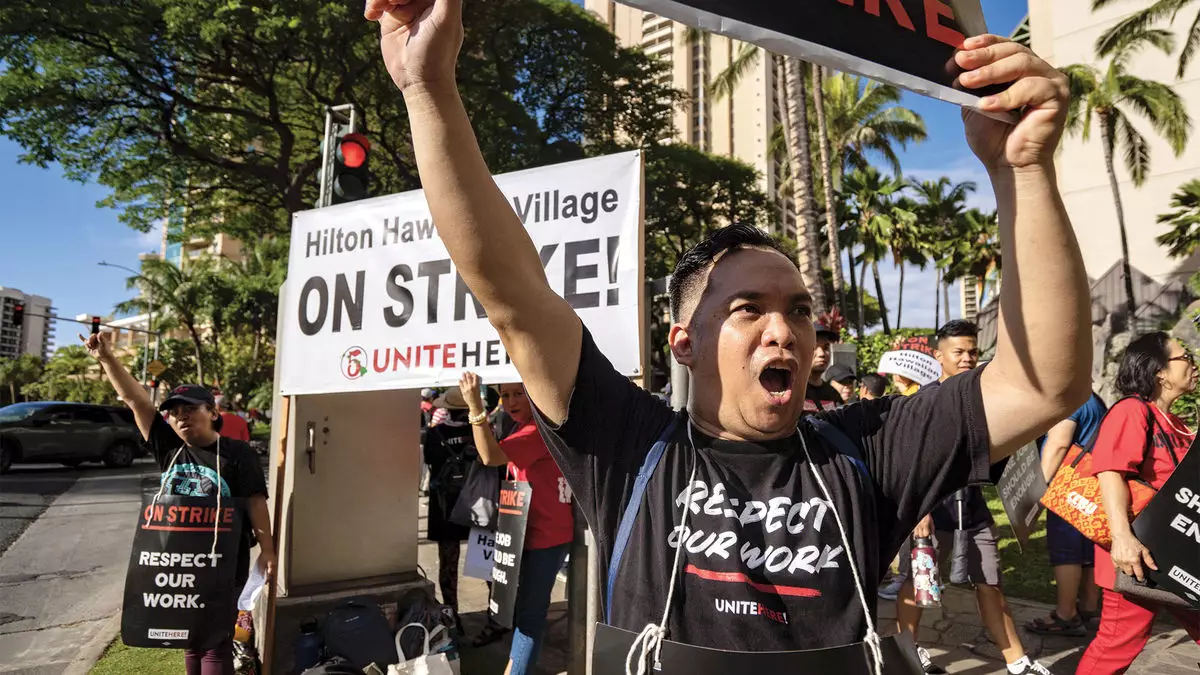The recent Labor Day weekend walkouts by 10,000 hotel workers across nine U.S. cities have sparked discussions about the state of the hospitality industry and the challenges faced by its workforce. The strikes, organized by the labor union Unite Here, were driven by the workers’ demands for higher wages, fairer staffing levels, and the reversal of service cuts implemented during the pandemic. While the workers have returned to their posts, the possibility of further strikes looms over the industry, highlighting the complexities of contract negotiations and labor relations in the hotel sector.
The strike affected 25 properties operated by major hotel chains, including Hilton, Hyatt, and Marriott International, in various cities across the country. The demands made by the workers reflect broader issues within the industry, such as job losses, increased workloads, and stagnant wages. The failure to address these concerns could lead to prolonged conflicts between labor unions and hotel operators, disrupting business operations and impacting the overall guest experience.
According to Unite Here’s international president, Gwen Mills, many hotel employees struggle to make ends meet in expensive urban markets, where the cost of living far exceeds their earnings. The disparity between record profits in the hotel industry and the financial struggles faced by workers underscores the need for fairer labor practices and better employee benefits. The pandemic-induced service cuts have further exacerbated the situation, pushing workers to demand comprehensive changes in their working conditions.
Hotel operators, including Hyatt and Hilton, have expressed their willingness to negotiate with the labor union and address the workers’ concerns regarding wages, healthcare, and retirement benefits. However, the efficacy of these offers in satisfying the workers remains uncertain, as the negotiations continue to unfold. The hotel industry’s commitment to maintaining a cooperative relationship with the unions is crucial in resolving the disputes and avoiding prolonged conflicts that could affect the overall stability of the sector.
The outcome of the ongoing negotiations will play a vital role in shaping the future of labor relations in the hospitality industry. The potential for further strikes and unresolved disputes could impact the market recovery and consumer sentiment, leading to financial repercussions for both hotel operators and workers. Public support and awareness of the workers’ demands will be key determinants in the successful resolution of the conflicts, highlighting the importance of transparent communication and mutual cooperation between all stakeholders involved.
The recent hotel workers strikes have brought attention to the underlying issues within the hospitality industry, emphasizing the need for equitable labor practices and sustainable working conditions for all employees. The challenges faced by hotel workers in demanding fair wages and better benefits reflect broader concerns within the sector, necessitating a collaborative effort from both labor unions and hotel operators to address these issues effectively. The outcome of the negotiations will shape the future of labor relations in the industry and impact the overall well-being of the workforce and the business as a whole.

